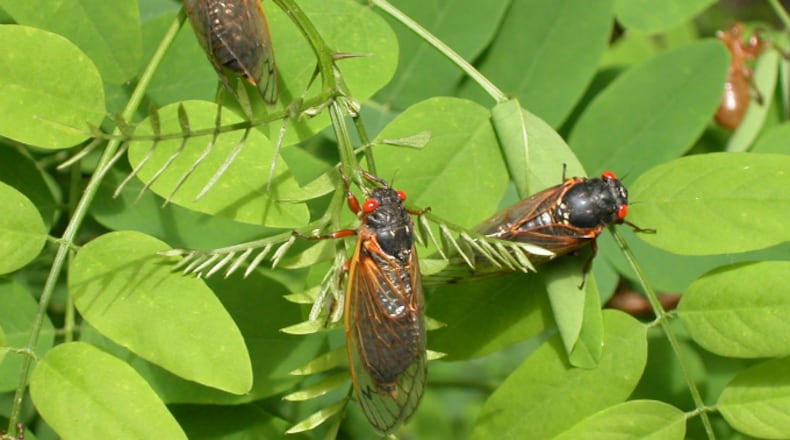Georgians with a keen sense of sound and a watchful eye for insects are in for a surprise as swarms of cicadas and their overpowering hums make their way to Georgia any day now.
These insects, also called "17-year locusts," are notorious for disappearing for several years (in this case, 17) and reappearing "at force" in intervals, according to National Geographic.
The 17-year brood, Brood VI, is estimated to hatch this month in North Carolina, South Carolina and Georgia, according to the Gardener's Network.
This brood probably won’t be back until 2034, but Brood X is estimated to make its way to Georgia in 2021.
The insects are expected to emerge in Rabun County and later show up in Dade, Elbert, Floyd, Habersham, Paulding, White and other surrounding counties.
"The Georgia brood could number in the millions and may impact anywhere from a single, small area to several states," Patch reported.
University of Georgia entomologist Nancy C. Hinkle said Georgians may first notice shed cicada skins on trees and poles and later, notice the red-eyed insects flying around trees and bushes.
According to Hinkle, the bugs aren’t particularly harmful to animals and plants, but could occasionally pierce plant stems.
However, massive swarms of the insects crowded in a single area could potentially damage young trees.
The undigested remnants of the cicadas could also be harmful to dogs and are known to upset their stomachs, according to the New York Times.
In 2016, some areas saw densities of 1.5 million periodical cicadas per acre, the Washington Post reported.
"They'll be out as one of the natural wonders of nature. Watch them, enjoy them and they'll be gone in about a month," John Cooley from the University of Connecticut ecology and evolutionary biology department said.
After the periodical cicadas have tapered off, Cooley said, the summer cicadas will be on their way.
About the Author
Keep Reading
The Latest
Featured




